Which gas generator is better: inverter or conventional?
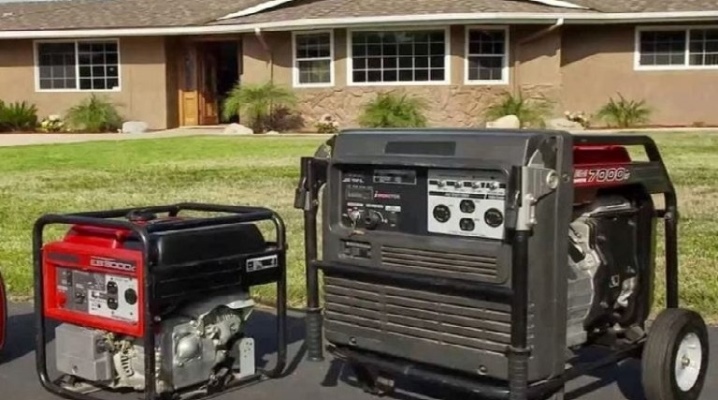
Currently, there is such a variety of modifications and varieties of electric generators on the market that it is rather difficult to decide which one is suitable for solving a particular task. First of all, it is necessary to clarify how much electricity the house consumes. Naturally, each owner of an individual house will have their own indicators.
In a country house, to support supply systems, at least 10-15 kW are usually required. A small cottage or utility room (temporary house) "eats" 2.5-5 kW.
It is much more difficult to establish what type of generator to buy: inverter, conventional diesel or gasoline.
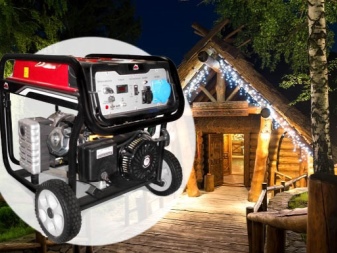
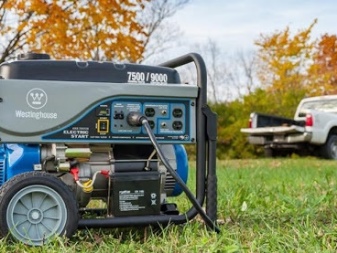
General characteristics of generators
Let's analyze the advantages and disadvantages of each of the samples.
The usual
In fact, this is a small power station in the house: the fuel burns out, the motor turns the generator, the energy of mechanical movement and interaction of the system is transformed into electrical energy.
Advantages:
- a wide range of units of various capacities: from "little ones" for 1 kW to solid units for 8-10 kW or "giants" for 20-40-100 kW, which are already intended for industrial use;
- simplicity of application and relative reliability subject to the terms of use;
- low cost in comparison with inverter installations.
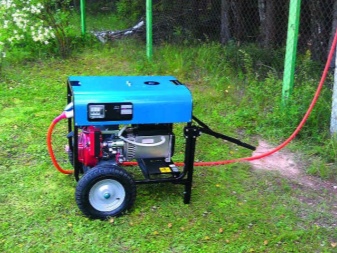
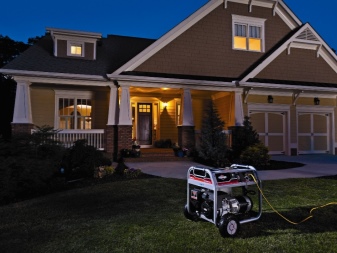
There are also many disadvantages.
- The unit must operate with a constant load. Operating the generator with less than 25% load will result in premature failure.
- High fuel consumption with insufficient workload.
- Motor noise... The operating unit should be located away from home or in a sound-absorbing box.
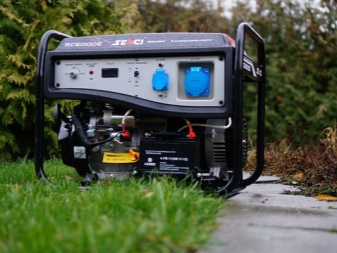
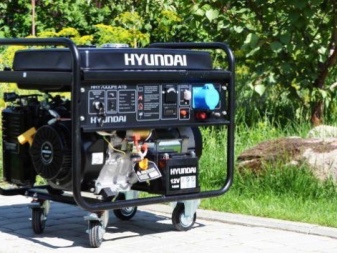
Another problem that can appear during the operation of such a unit is fluctuations in the output voltage with an increase or decrease in engine speed.
For household lighting and individual appliances, minor voltage fluctuations are not particularly critical. However, for certain expensive systems (smart home systems, control units for gas boilers, forced circulation pumps or refrigerators), any change in the quality of electrical energy can lead to equipment failure or premature failure.

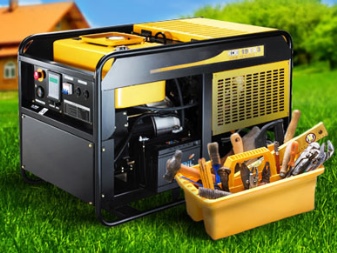
Inverter
Most often, inverter power generators are used for irregular use in the event of an unexpected power outage. They are practiced in homes outside the city or for household needs at a permanent place of residence, in offices where high-frequency equipment operates. Such an installation can be purchased once and for a very long period. The reliability of the device provides a set of functional properties.
- The alternating current generated by the generator is transformed into direct current, and the resulting wave oscillations become stable. This makes it possible to receive high quality electricity at the output.
- In principle, the functioning of the generator lies the possibility of a rapid launch, which is activated by a special ignition system.
- The generator is controlled by an autoregulation system, under the supervision of which there is a motor speed, characterized by load parameters. This principle makes it possible to practically consume fuel (consumption can be reduced by almost 40%).
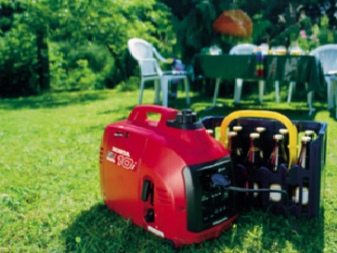
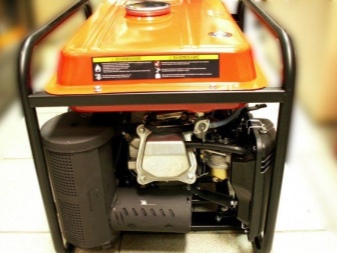
An inverter generator is much more expensive.
However, it has many benefits:
- It has wide power range (2-8 kW) with economical consumption of liquid fuel;
- economical, since it is able to correctly balance the engine speed based on the real load and thereby save fuel consumption;
- lightweight and compact (in comparison with other models);
- almost no noise when workingbecause its design includes specialized mufflers and a double soundproof casing;
- produces high quality electrical energy, along with this, almost without emitting harmful compounds into the surrounding atmosphere;
- extremely reliable and durable: all its elements and connections are adapted to external loads and are resistant to negative environmental factors.
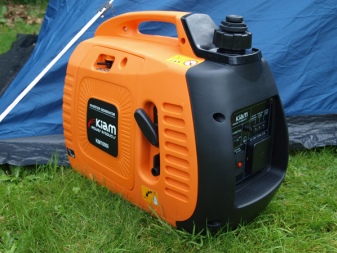
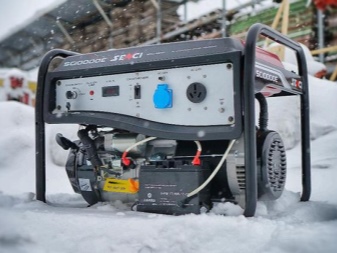
With excellent electrical performance and high economy, the inverter generator has disadvantages, which must be taken into account when purchasing:
- high price: a solid inverter has a price 2-3 times more than that of an ordinary modification;
- unit capacity is limited: the permissible maximum power of the bulk of common modifications will be no more than 5 kW (you can find models for 7 kW, only they are not yet very common, and their price exceeds reasonable limits);
- complexity of repair work in case of failure;
- problematic to replace the battery in case of loss of her working capacity.

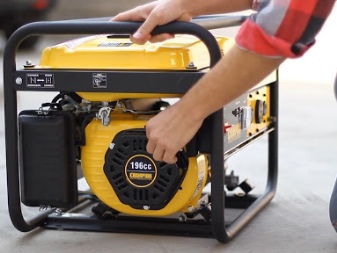
What is the difference?
The key difference between a diesel or an inverter-type generator from a simple one lies in the specifics of connecting the engine to an electric generator: it is direct, and this decision is correct. Inverter units are mobile, gasoline or diesel fuel is used to power them, which is very practical.
Unlike a conventional electric generator, an inverter generator does not supply high-frequency alternating current directly to the consumer.
Initially, it passes the converter, where it is transformed into a constant, after which it is sent to the smoothing filter.
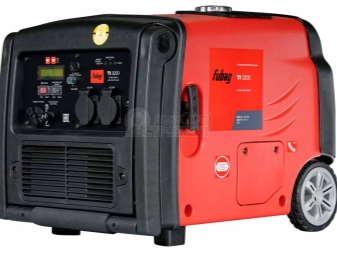
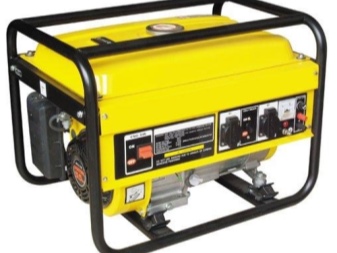
The stabilizer normalizes performance. Then, the direct current by means of the inverter is again transformed into an alternating one, only already purified, with a deviation of the amplitude of the sinusoid of no more than 2.5%.
Basically, such a device is practiced in the format of an alternating or direct current electric generator for servicing sensitive electrical equipment.
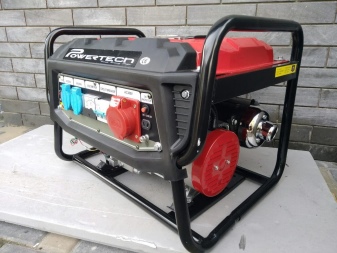

What to choose?
Having dealt with the parameters of different types of units and having determined the difference between them, we can say with precision which gas generator will be the best. The purchase of environmentally friendly and low-noise, compact and reliable inverter gas generators is the right decision, since they are clearly better than conventional counterparts in many respects. Their small size and ensuring a stable supply of electrical energy deserve very high marks. The cost of the inverter unit is quite high, but do not hesitate, it costs so much money, it will quickly justify itself.
In favor of inverter units is also the fact that they are purchased not only as backup equipment (if power is cut off), but also as a stationary power plant where there is no electricity. They are taken to connect sensitive electronics without a stabilizer.
If high accuracy of voltage and frequency is essential, as well as mobility, weight and low noise level, economy, then purchasing an inverter generator will be an excellent choice.
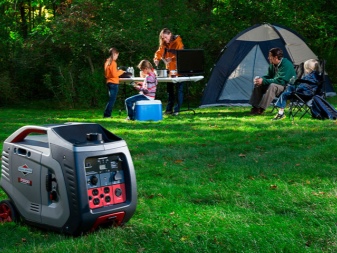
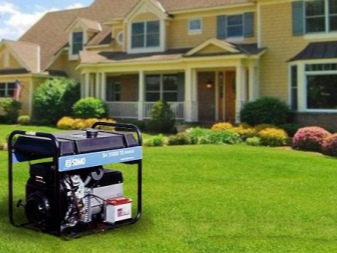
The advantages and characteristics given and mentioned in this article make it possible to talk about very high performance and properties of inverter units. Their use in everyday life, at industrial enterprises, in offices, educational and medical institutions is more than justified, since they guarantee the stable operation of industrial installations, multimedia and computer equipment, security alarm systems, tools and other equipment that needs power supply. Having installed such a unit once, you can not be afraid of unexpected outages or power drops. And the long term of use of the device will make it possible to save money on repairing or replacing the generator.
Watch a video on which generator is best for your home: conventional or inverter.













The comment was sent successfully.